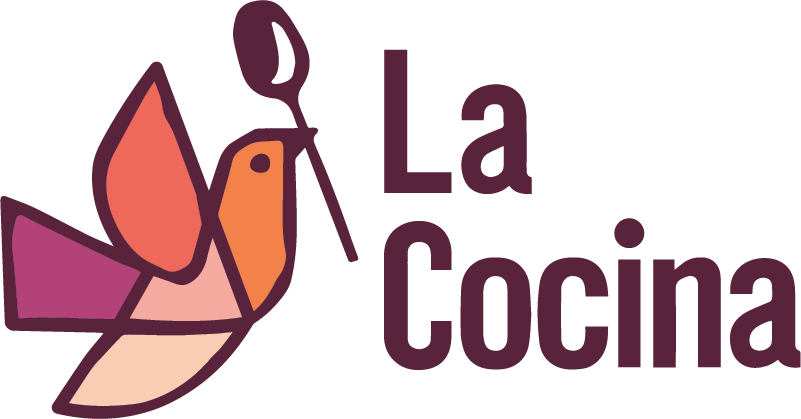“Not only has La Cocina been the most important food organization in San Francisco, but amid a changing landscape, it might also prove to be the key for San Francisco to remain San Francisco. ”

Inside La Cocina’s Folsom kitchen | Photo by Eric Wolfinger
La Cocina (“The Kitchen” in Spanish) was born out of the Mission District, a largely Latine working-class community that thrives in part due to the many small informal food businesses that serve the community.
Community organizations Arriba Juntos, Mission Economic Development Center, and The Women's Initiative for Self-Employment originally envisioned La Cocina, and in 2005, The Women's Foundation of California founded the organization to transform informal food businesses into sustainable enterprises that create economic mobility for entrepreneurs.
La Cocina was built on the belief that naturally talented entrepreneurs, with the right resources, can create thriving businesses that nourish their families, communities, and city. Since 2005, our kitchen has been a launchpad for incredible food—and it tastes just as good as the dream behind it.
La Cocina’s mission is to solve problems of equity in food business ownership for women, immigrants and people of color by providing affordable kitchen spaces, training, resources, and community to talented entrepreneurs so they can cultivate thriving businesses.
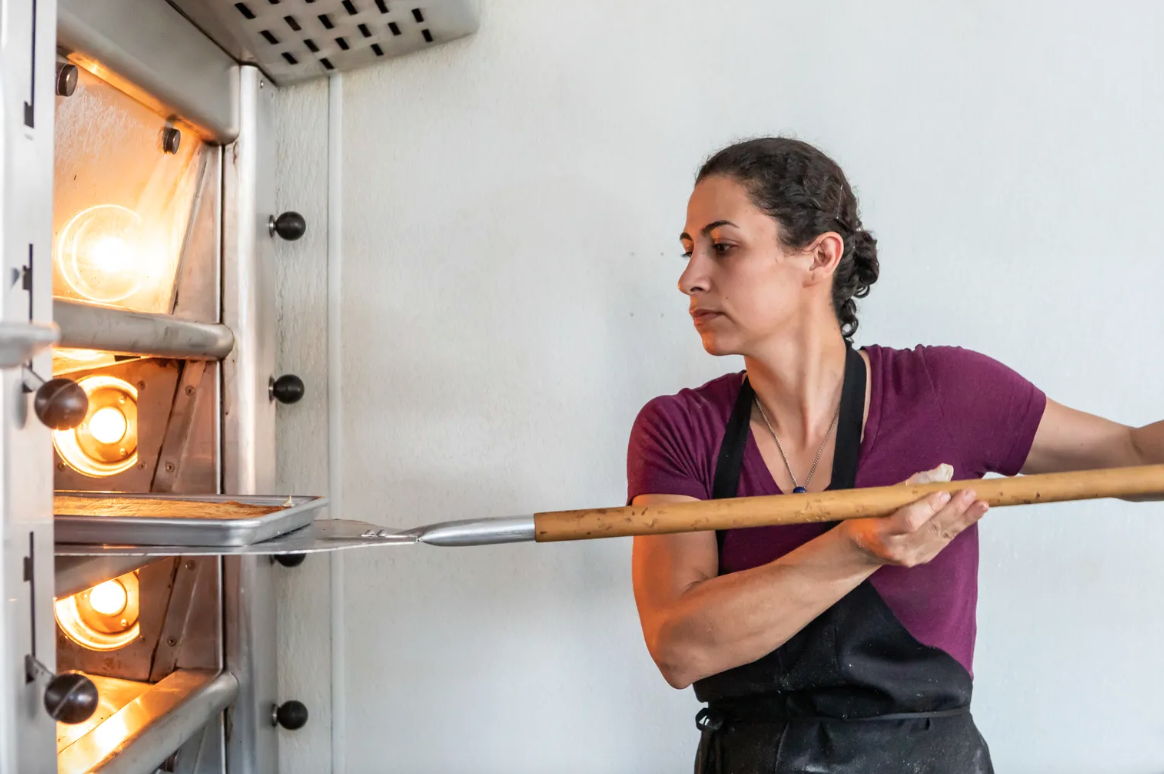

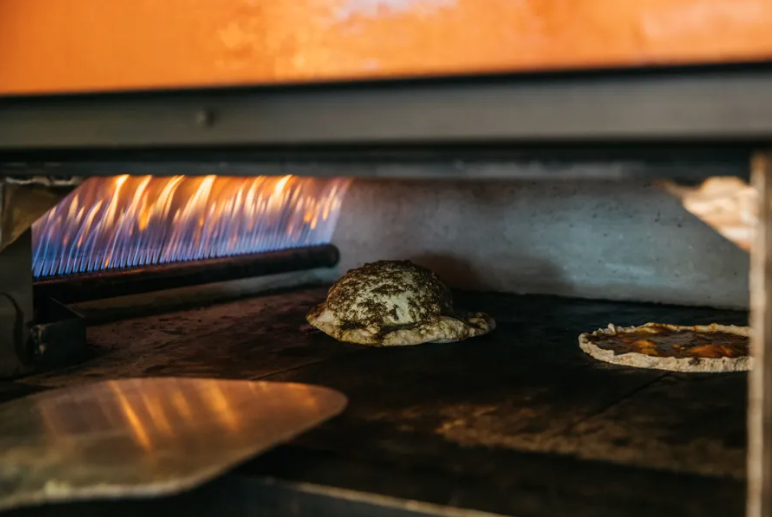

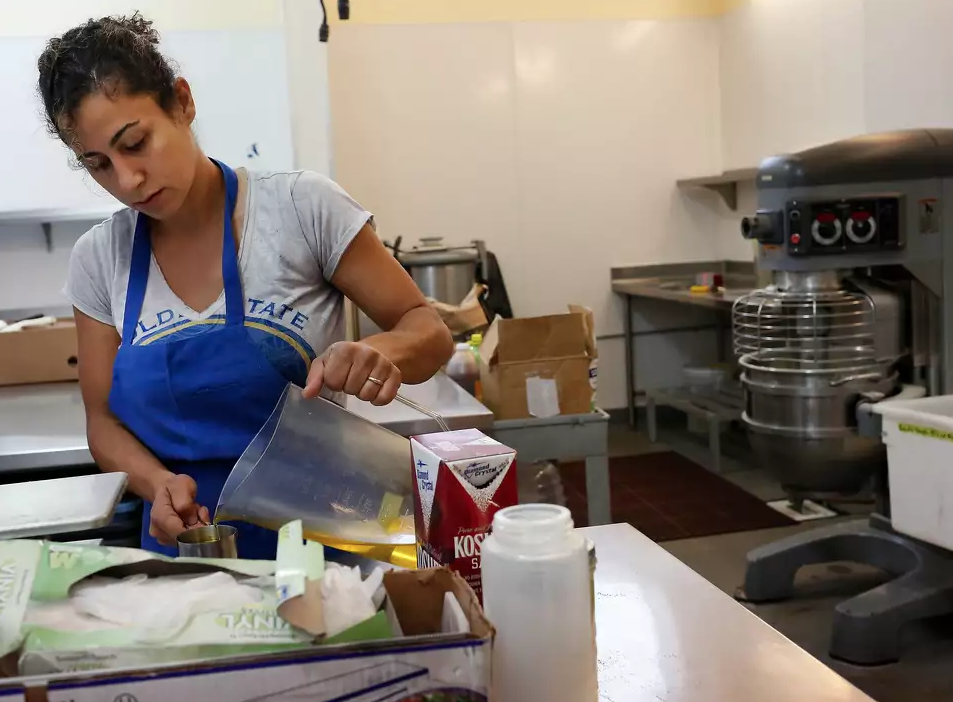
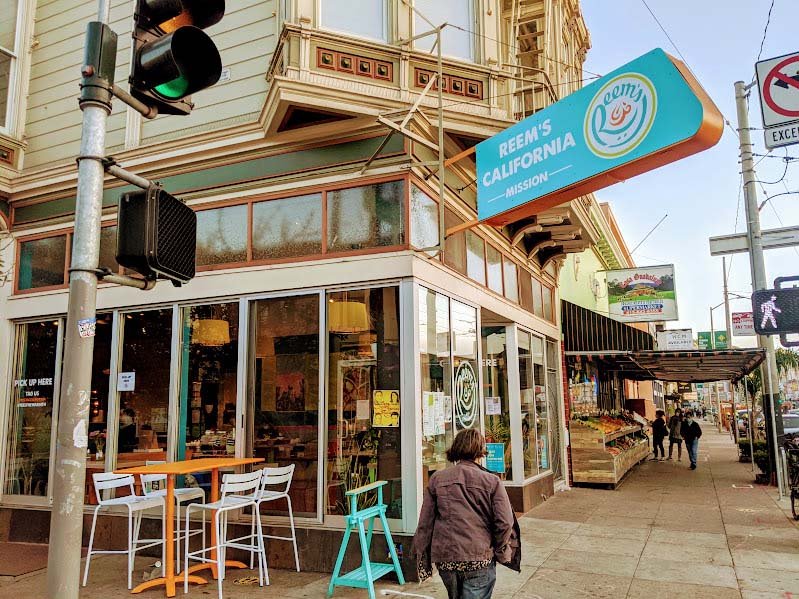
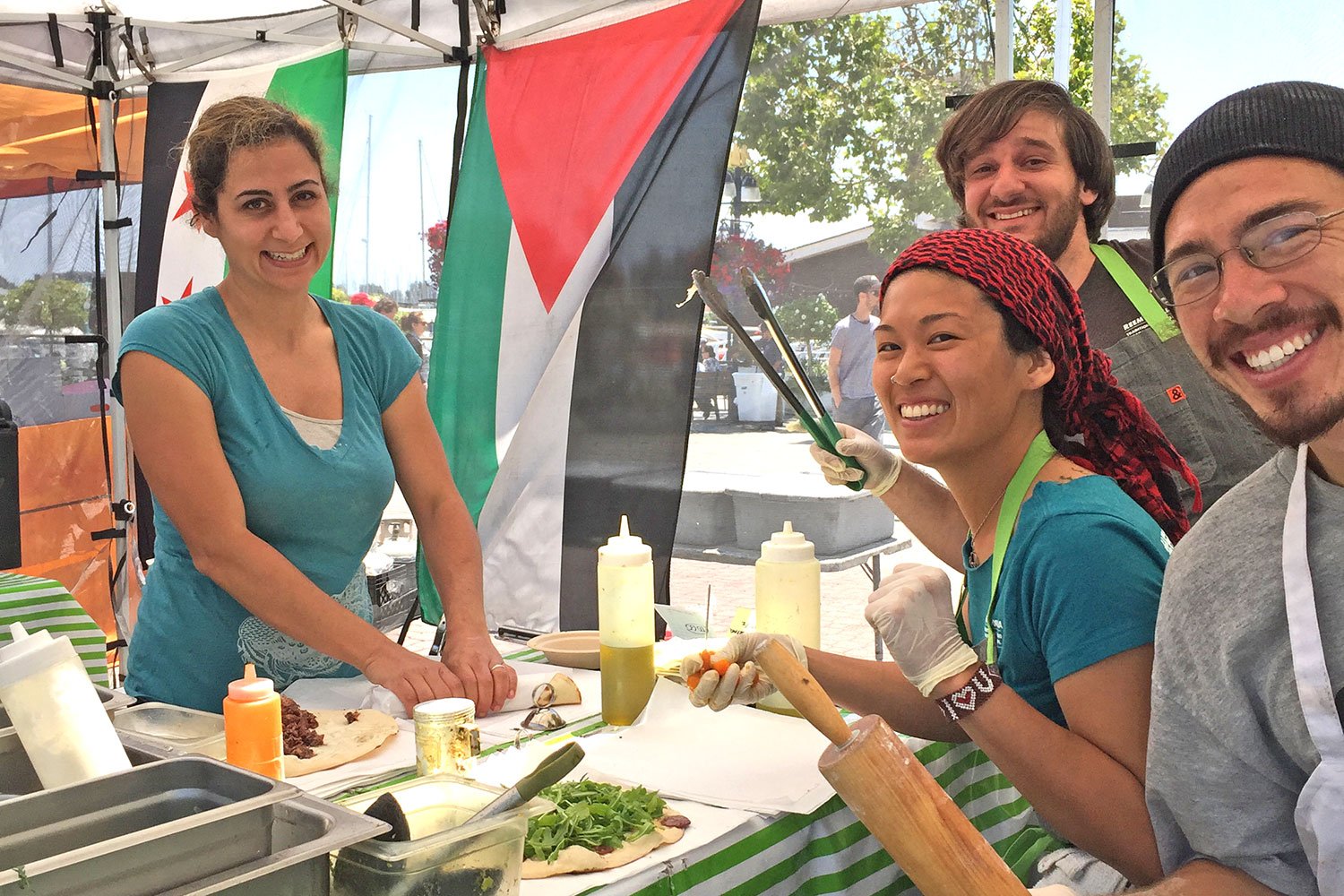
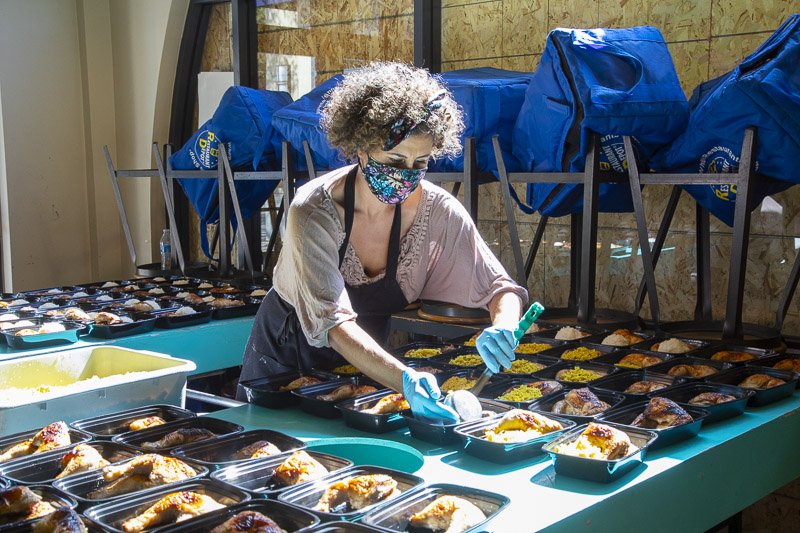


Chef Reem Assil joined La Cocina in 2014, and in 2017 launched Reem’s California in Oakland, an Arab Bakery focused on cultivating understanding for the Arab experience in America.
Today, Reem employs 15+ people at her now Mission District-based bakery. She’s the author of the award-winning cookbook Arabiyya. And her food continues to nourish and inspire the greater Bay Area.
Reem has earned many accolades over the past decade, including:
2022 James Beard “Outstanding Chef” finalist, and 2019 & 2018 “Best Chef West” semifinalist.
2022 IACP Award for Arabiyya cookbook
2019 SF Chronicle’s “Top 100 Restaurants”
2018 Food & Wine “Top 10 Restaurants”
Photos by Patricia Chang, Leah Mills, Luke Beard, Maria C. Ascarrunz, Estefany Gonzalez, and Foodwise.
La Cocina graduates and program participants.
The vision of La Cocina is a local, national, and international economy that deeply values locally owned food businesses where communities come together, culture and flavors are shared, and economic well being is achieved. We exist to create a community of food entrepreneurs working not only for their own success but for the benefit of their families, neighbors, and the generations to come. We strive for a future where those disadvantaged by capitalism, racism, sexism, and able-ism can harness their talents, power, and creativity to create inclusive, thriving economic alternatives.
Concretely, we offer commercial kitchen spaces and programming at an affordable rate to working-class entrepreneurs, primarily women, immigrants, and BIPOC individuals. We support food business owners in building skills, accessing capital, and establishing businesses that support their families and contribute to vibrant, equitable communities through job creation and the stewardship of resources and our environment. We also consult with organizations nationally and internationally doing this work in order to create a groundswell of change and opportunity.
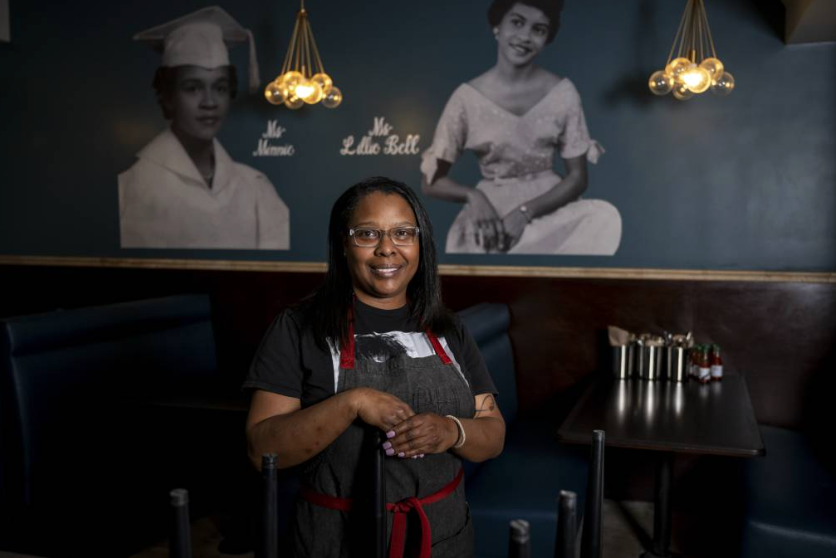
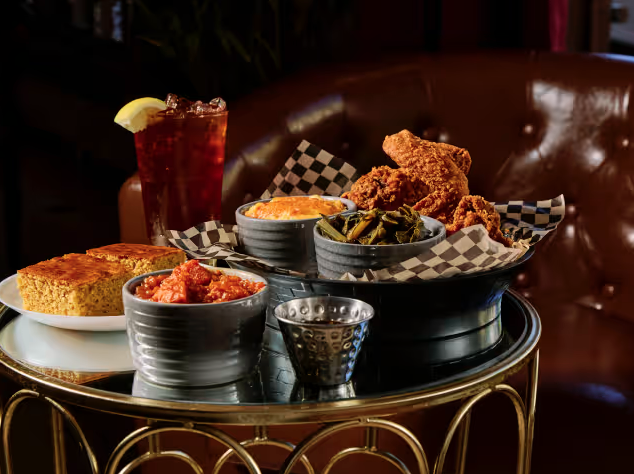
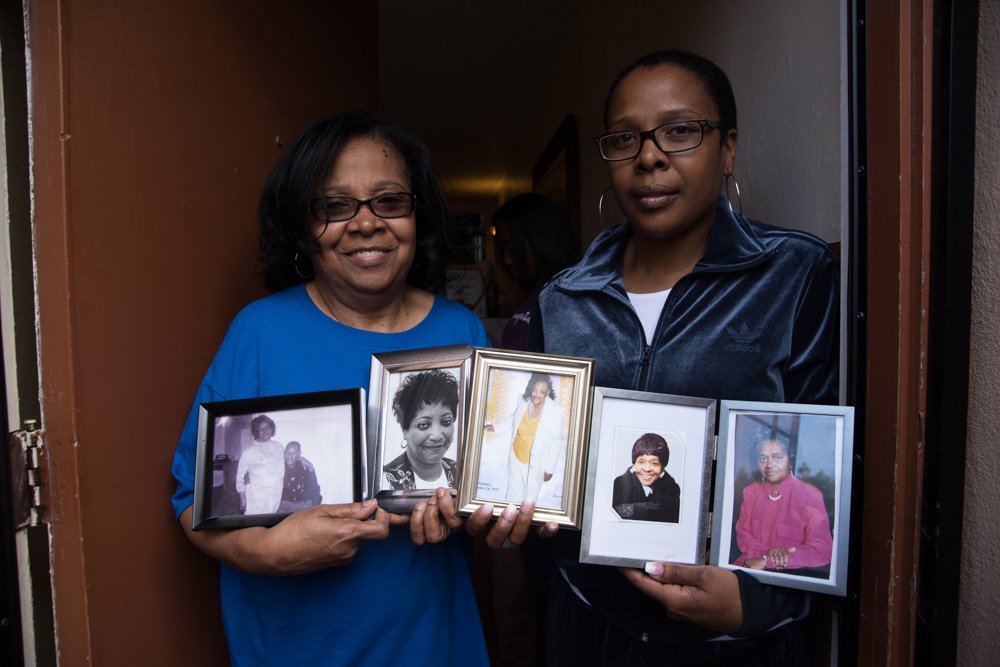
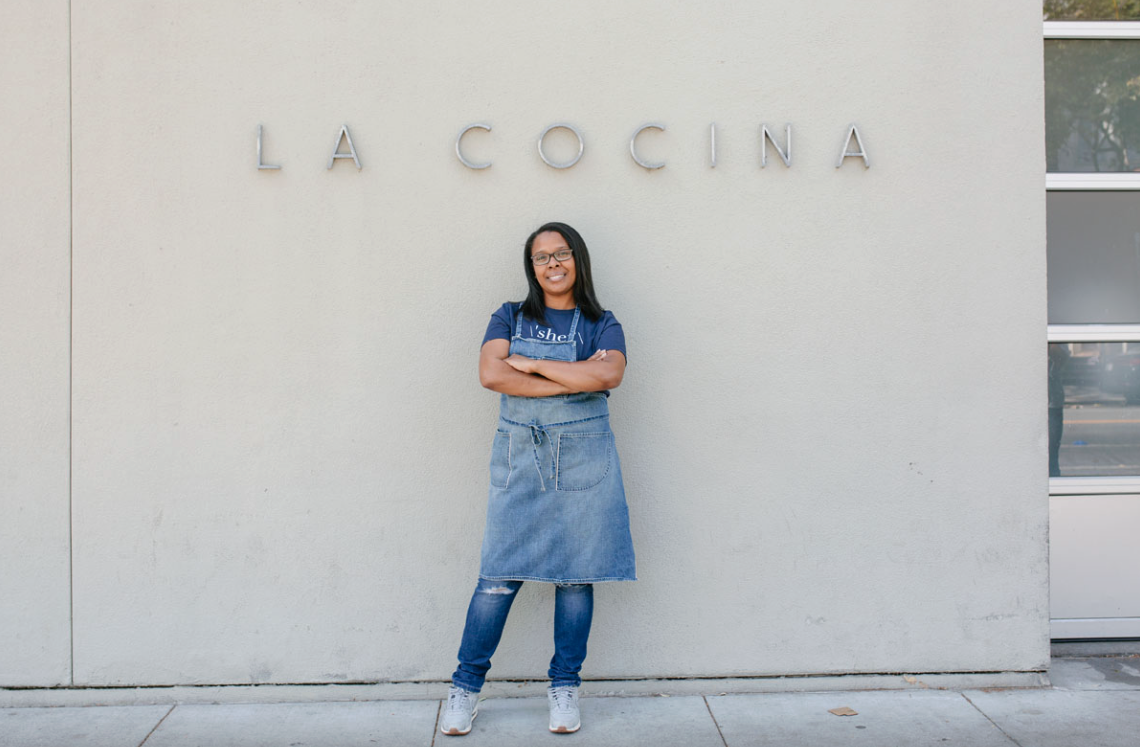
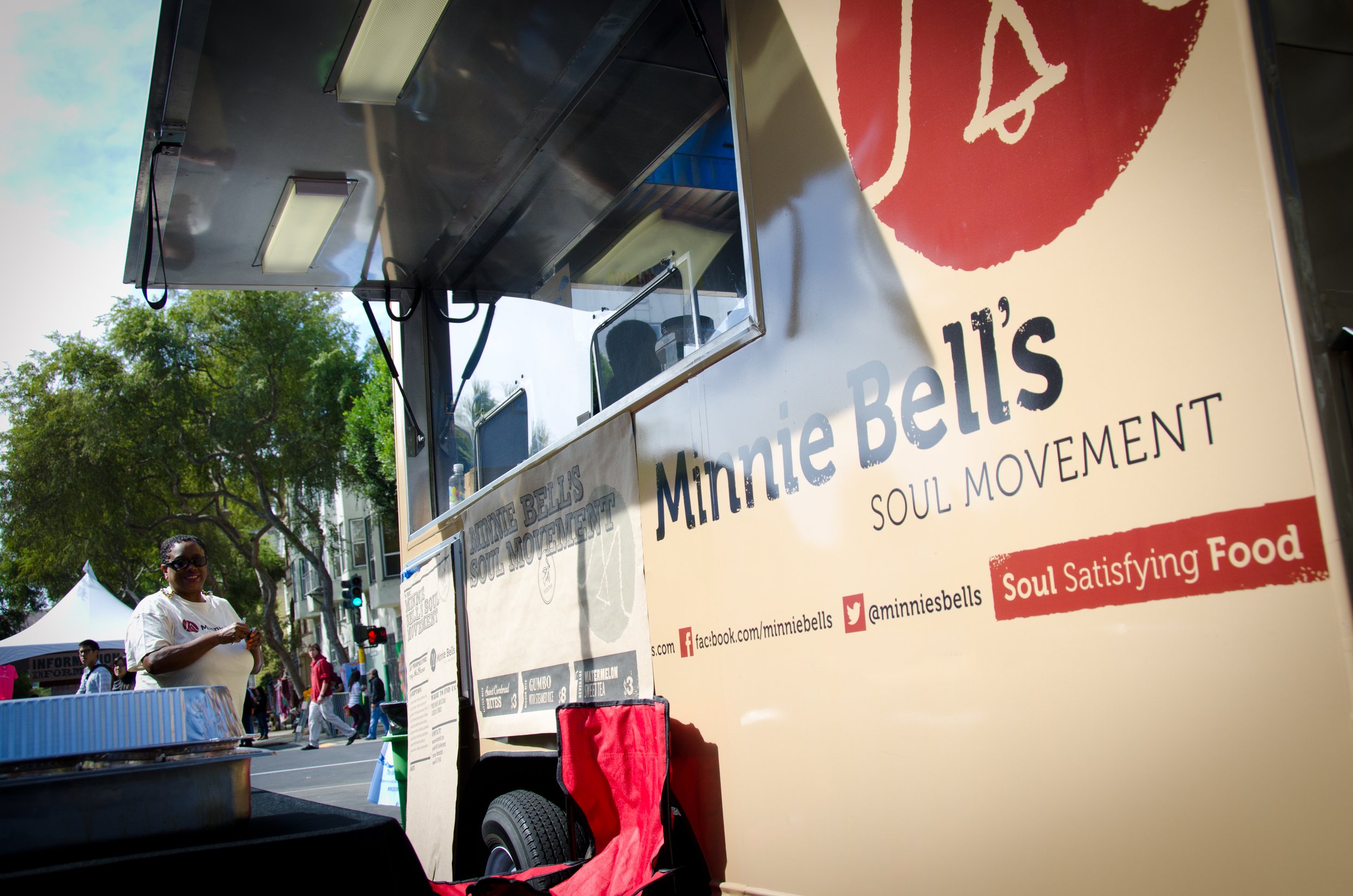
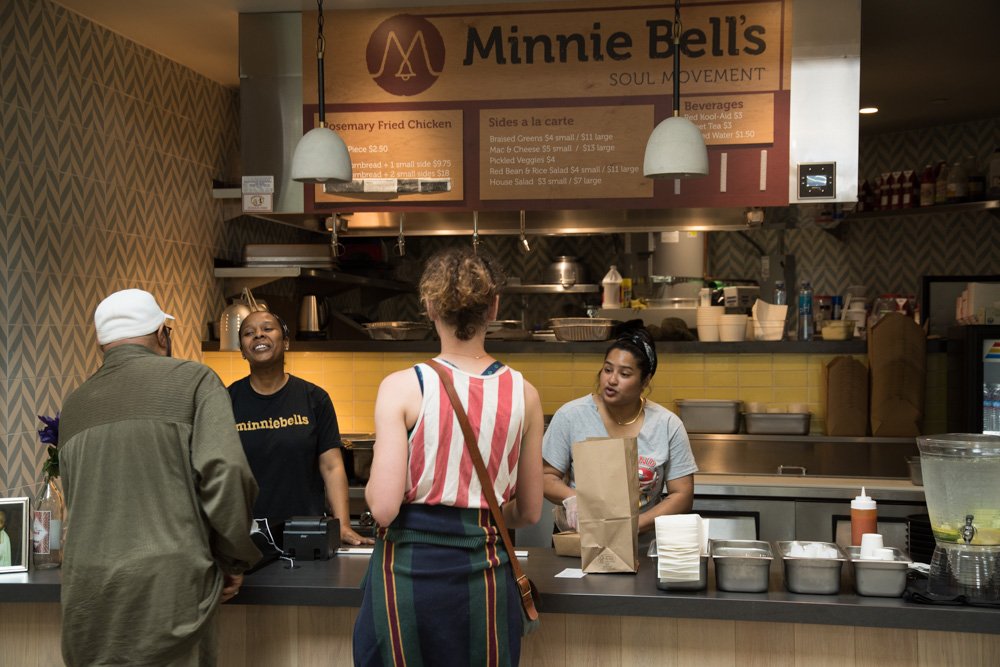
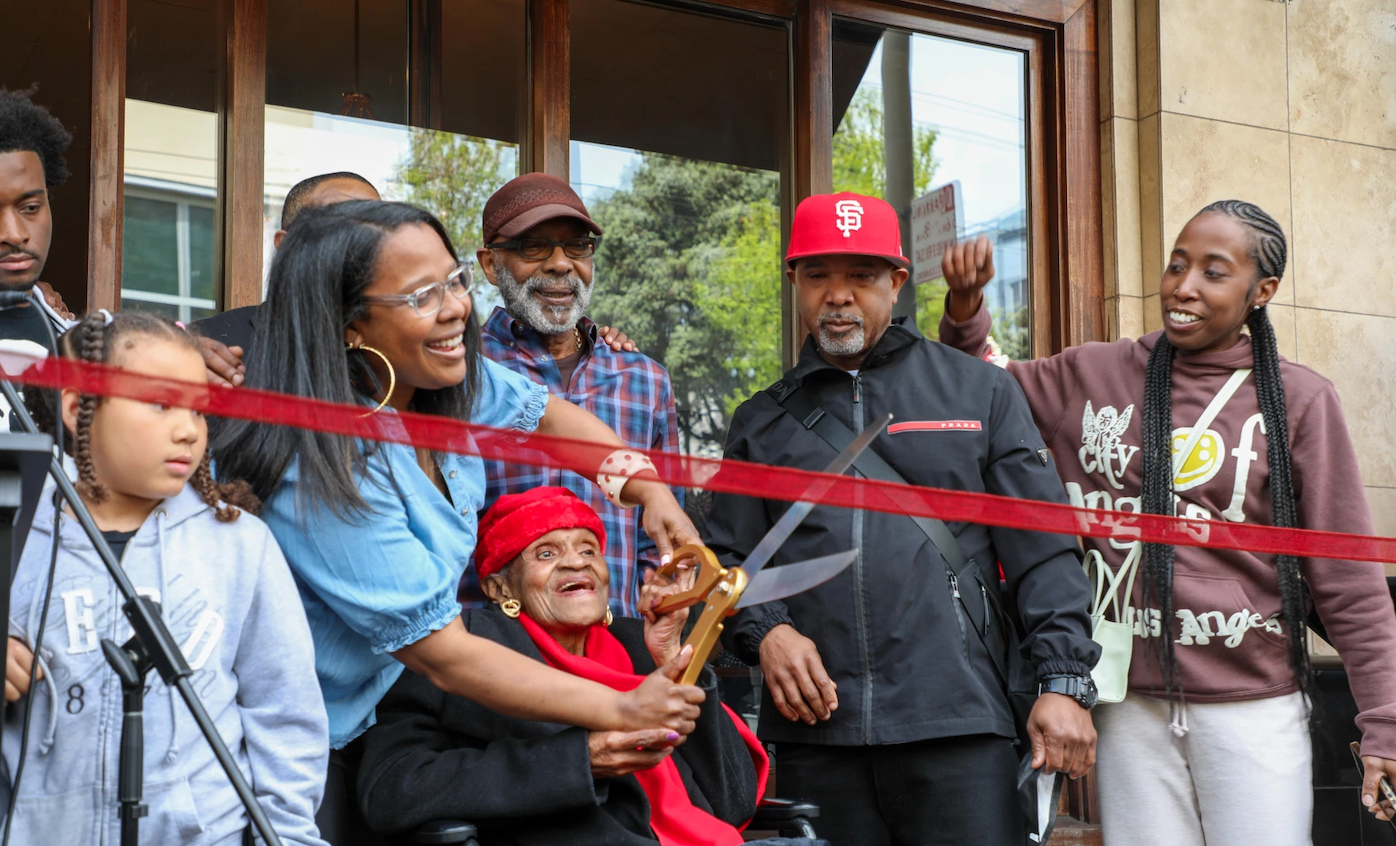
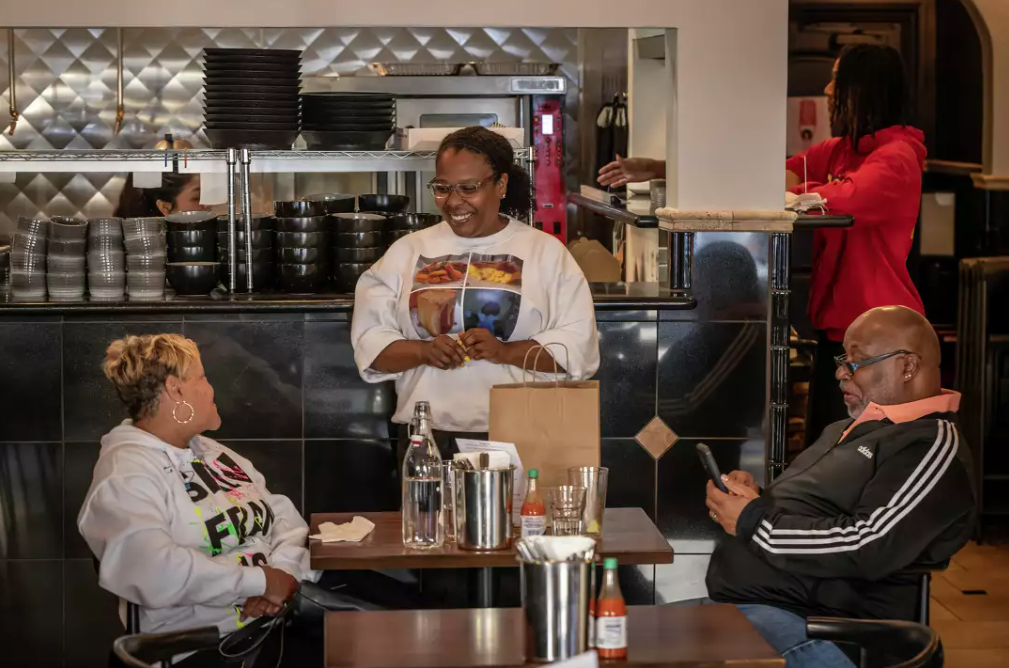
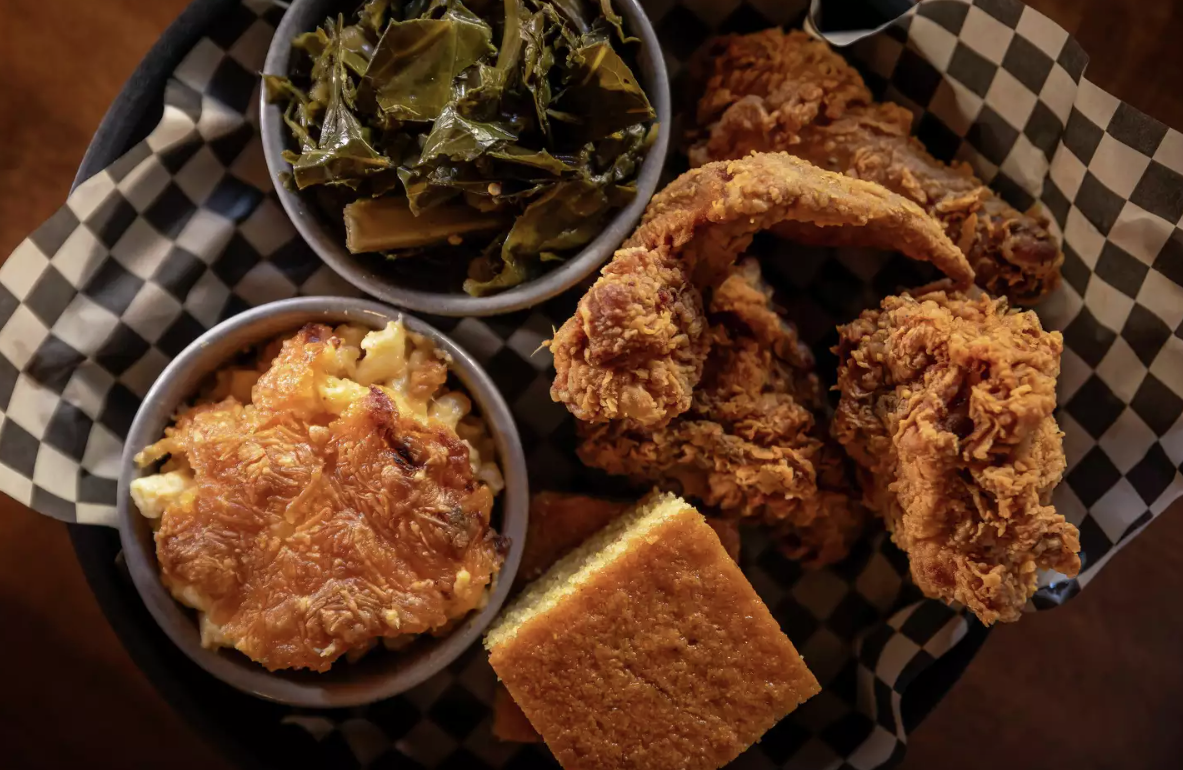
Fernay McPherson is the chef-owner of Minnie Bell's Soul Movement, celebrated for her rosemary fried chicken and Southern cuisine in the Bay Area.
Fernay Joined La Cocina in 2011, launching a food truck two years later. Her truck turned into a successful kiosk at Public Market Emeryville. And, in 2024, that kiosk turned into Fernays’s first restaurant in SF’s Fillmore neighborhood where three generations of her family have lived.
Fernay has earned recognition for her leadership and food, including:
2025, 2024 SF Chronicle “Best Restaurant”
2024 L.A. Times “Where to Eat in SF”
2021, 2020 SF Chronicle "Top 100”
2021 Eater SF "Essential 38 Restaurants"
2019 Southern Foodways Alliance Fellow
Photos by Beth LaBerge, Melissa Zink, Eric Wolfinger, Monica Lo & Rebecca Goberstein, Stephen Hsu, Citizen Film, Carlos Avila Gonzalez
La Cocina staff and entrepreneurs | Photos by Erin Ng
At La Cocina, everything we do is done with hospitality, for our community, and in the service of opportunity and inclusivity.
-
We intentionally build towards collective power by valuing everyone in ways that honor reciprocity, trust and transparency with a goal of shared joy and a deep sense of abundance.
-
We start with accepting ourselves and being firm in our power; modeling and amplifying the fact that we all belong and deserve to be represented and celebrated.
-
We are passionate, genuine, and we take care of ourselves and the people around us, allowing us to provide warm, accepting, and welcoming spaces for family, guests, and visitors.
-
We expand access and build skills to formalize businesses in ways that center the many strengths of our community so we can all thrive, contribute to each other's success, and shape the food landscape.
